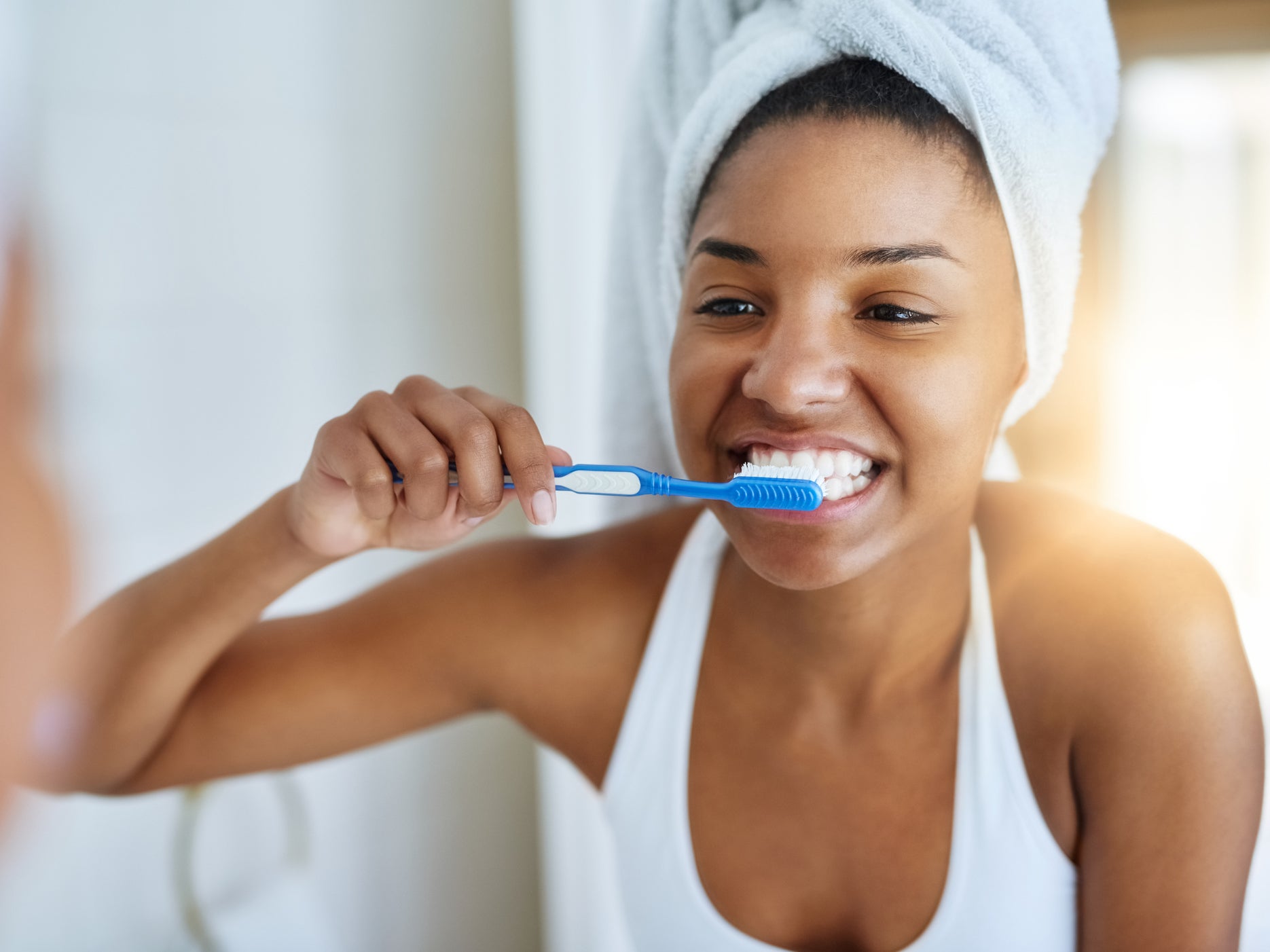Brushing teeth three times a day could reduce risk of heart failure, study claims
But scientists say it is 'too early to recommend tooth brushing for prevention of heart failure', as more research is needed

A new study has claimed that brushing your teeth more than twice a day could reduce your risk of suffering heart failure by more than 10 per cent.
Researchers from the Ewha Woman’s University in Seoul, South Korea conducted an investigation to determine whether improved oral hygiene could be associated with a decreased risk of occurrence of atrial fibrillation – a health condition that causes an abnormally fast heart rate – and heart failure.
The team assessed more than 160,000 participants aged between 40 and 79, none of whom had a history of atrial fibrillation or heart failure, gathering their data from the Korean National Health Insurance System.
Having undergone a routine medical assessment between 2003 and 2004, which noted attributes including their height, weight, past illnesses, lifestyle and oral hygiene, the participants were all followed up for a median period of 10 and a half years.
The study, which was published in journal European Journal of Preventive Cardiology, found that three per cent of the individuals developed atrial fibrillation over the course of the study, while approximately five per cent experienced heart failure.
They concluded that brushing one’s teeth three or more times a day was associated with a 10 per cent lower risk of developing atrial fibrillation and 12 per cent reduced risk of suffering from heart failure.
However, the researchers acknowledge that the study has "several limitations", including factors such as the data set consisting only of participants of Asian heritage, that dental X-rays were not used to determine any existing presence of gum disease and that the number of times the participants went for dental visits could not be checked.
Furthermore, an editorial published in the scientific journal to accompany the release of the study stated that the “causality of these associations is unclear”.
“It is certainly too early to recommend tooth brushing for the prevention of AF [atrial fibrillation] and CHF [congestive heart failure],” the editorial reads.
“While the role of inflammation in the occurrence of cardiovascular disease is becoming more and more evident, intervention studies are needed to define strategies of public health importance.”
The study’s findings were independent of several factors, including the participants’ age, sex, BMI (body mass index), their socioeconomic status, how much alcohol they consume and whether they exercise regular.
The authors explained that one theory behind their investigation’s conclusion is that regular brushing of the teeth reduces the amount of bacteria that can be found in the pocket between the teeth and the gums, which may then in turn prevent the bacteria from entering the bloodstream.
Dr. Tae-Jin Song, of Ewha Woman’s University in Seoul and senior author of the study, said that the large cohort of participants, who were assessed over a long period of time, “adds strength” to the findings.
The Oral Health Foundation recommends brushing your teeth last thing at night and at least at one other point during the day.
The oral health charity also suggests changing your toothbrush every two to three months.
Join our commenting forum
Join thought-provoking conversations, follow other Independent readers and see their replies
Comments
Bookmark popover
Removed from bookmarks